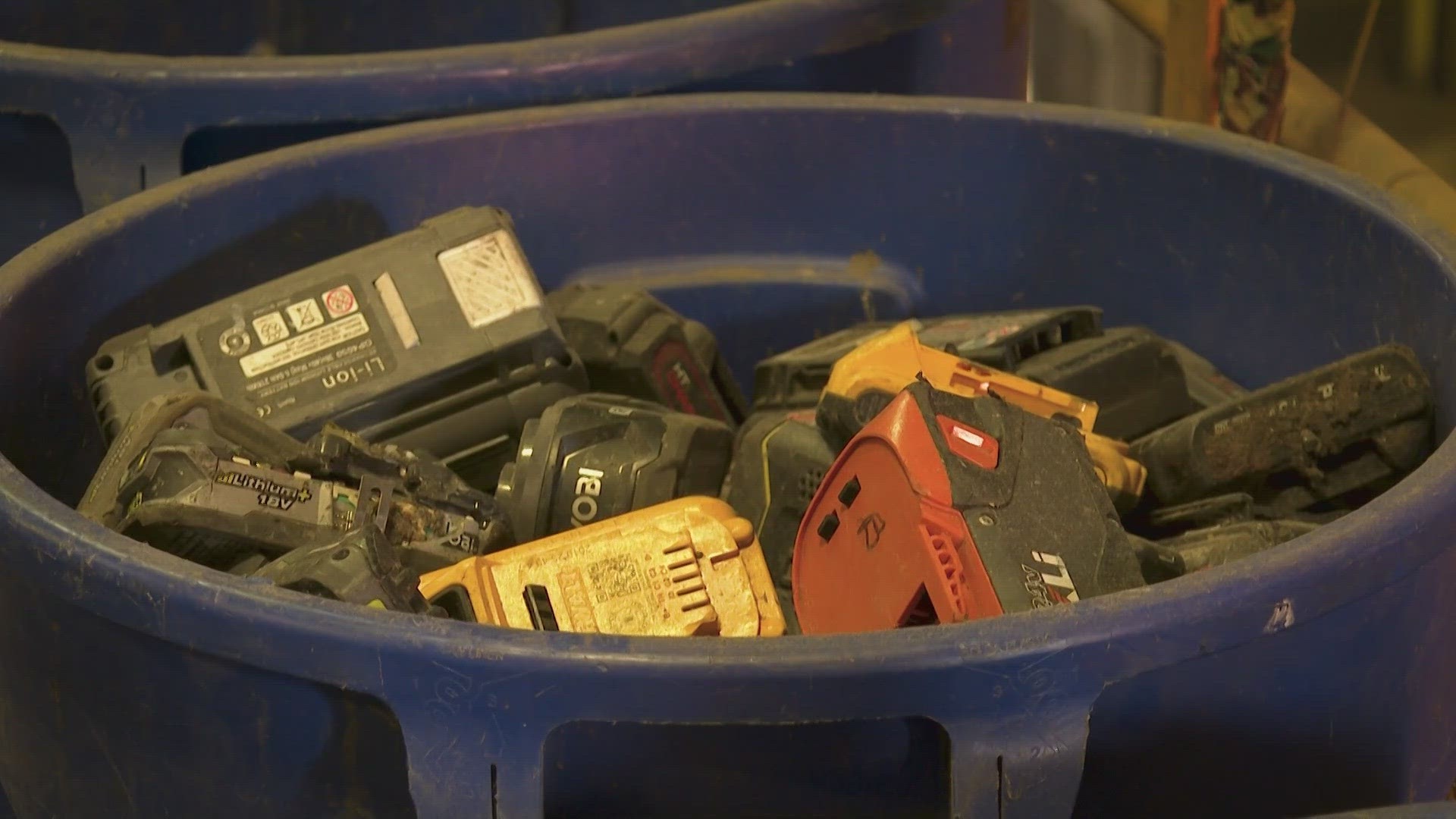LEWISTON, Maine — One of Maine's largest waste management companies is warning people about improperly disposed of lithium-ion batteries causing fires.
The company said it battled 12 separate fires from these batteries in the last month, including one at its Lewiston facility in early June.
Steve Henderson, the recycling site's manager, was there when that fire broke out.
"It only takes one. They're just so dangerous and people don't realize it," Henderson said. "It's scary. The scariest part is we could have gone home and that could have caught on fire after we left the building. That's the scariest part. Because then you lose the building and I've got 32 people out of work."
Luckily, no one was hurt in that incident. Henderson said his team finds 10 to 20 of these lithium-ion batteries improperly disposed of every day. Each one is a chance to start a fire that could hurt his team.
"The last thing I want to do is have to go to someone's house and tell their wife or their kids that, look, your dad or your brother got hurt today."
According to the U.S. Department of Energy and the Occupational Safety and Health Administration, when lithium batteries fail to operate safely or are damaged, they may present a fire and/or explosion hazard.
The main concern for Henderson and his coworkers is physical impacts that can damage lithium batteries, such as dropping, crushing, and puncturing. He said, when people throw away the batteries in their trash or recycling bins, those risks increase.
From the moment it gets dumped into the garbage or recycling truck, to the "tip" floor where a front loader scoops, dumps, and pushes waste into a baler, a battery is likely to get knocked around a lot, causing it to swell and burst, starting a fire.
"It can create its own oxygen as it burns, so it can create its own fire essentially, so it can be very difficult to extinguish," South Portland Fire Department Lieutenant Chris Swenson said.
Swenson and Henderson said the batteries burn until the fuel inside expends itself. The flames can burn as hot as 2,200 degrees Fahrenheit, and Swenson said even tens of thousands of gallons of water cannot extinguish it.
"You can bury them, but it does not go out until the fuel that's inside that battery is expended," Henderson said. "This is what keeps me up at night."
Henderson showed NEWS CENTER Maine a large container of improperly discarded lithium-ion batteries.
Casella offers tips on how to properly recycle lithium-ion batteries, as does the U.S. Environmental Protection Agency.
They suggest visiting call2recycle.org or casella.com. Many big box stores, such as Home Depot, Lowe's, and Walmart have dedicated lithium-ion dropboxes.

